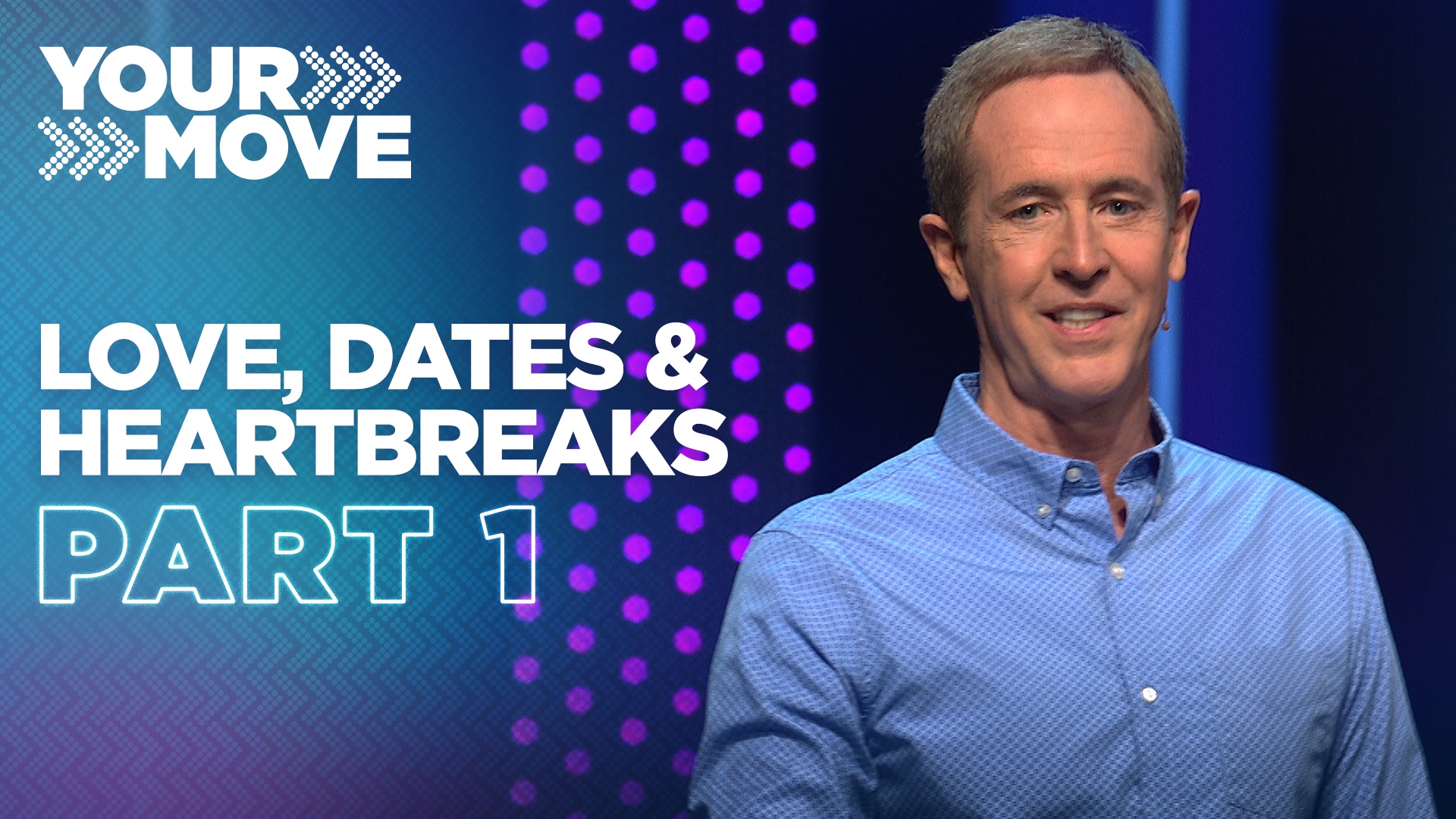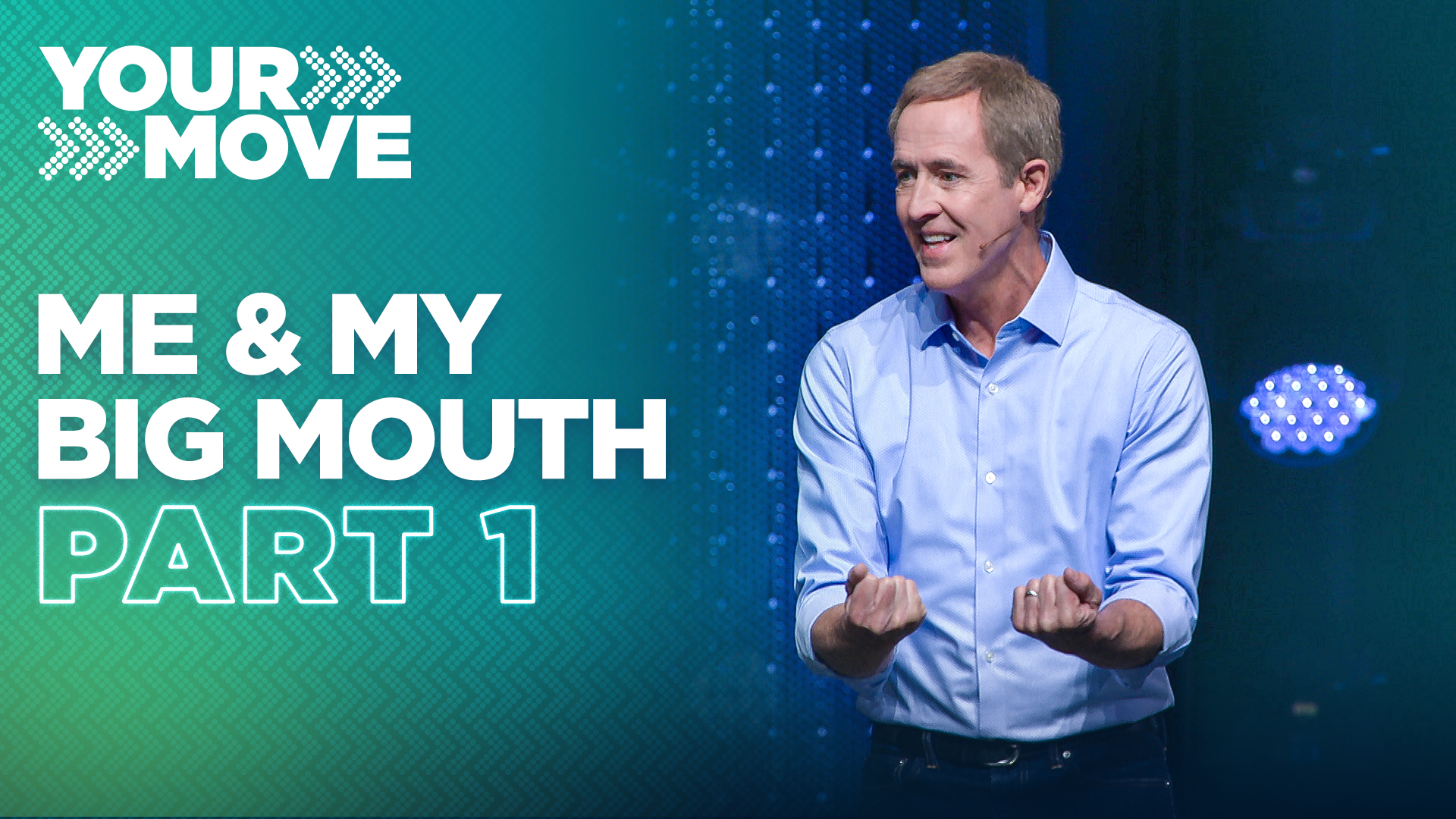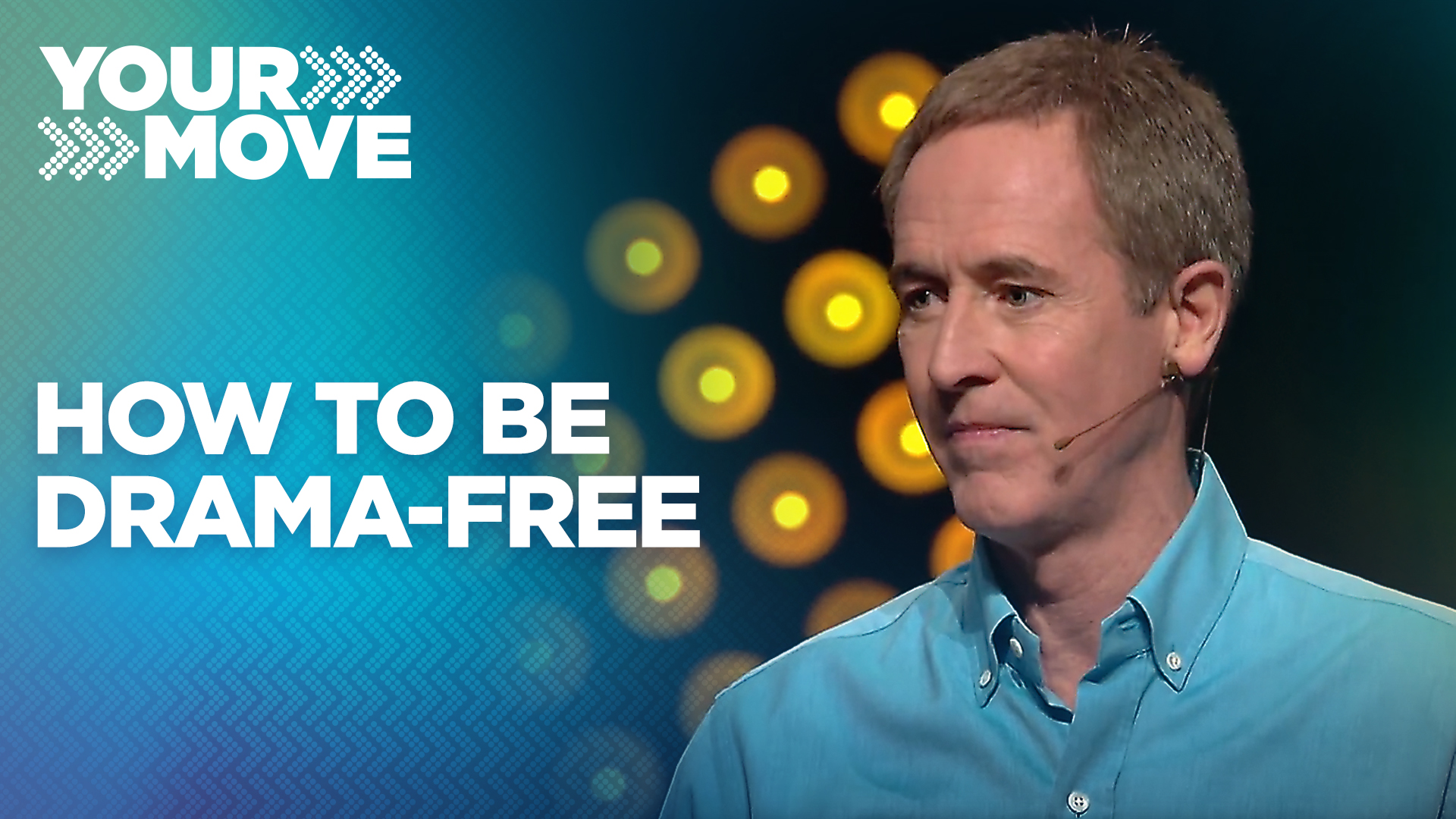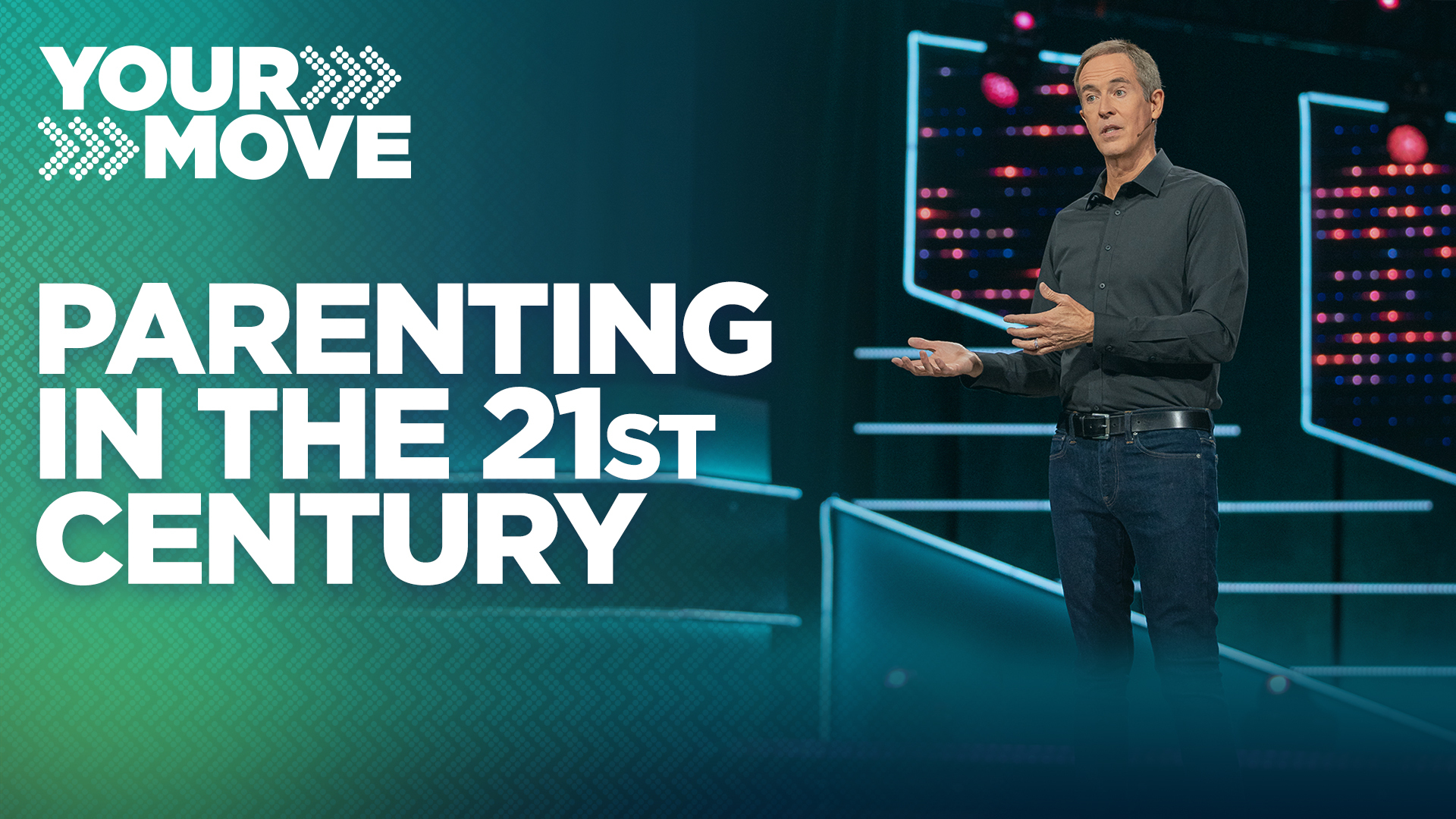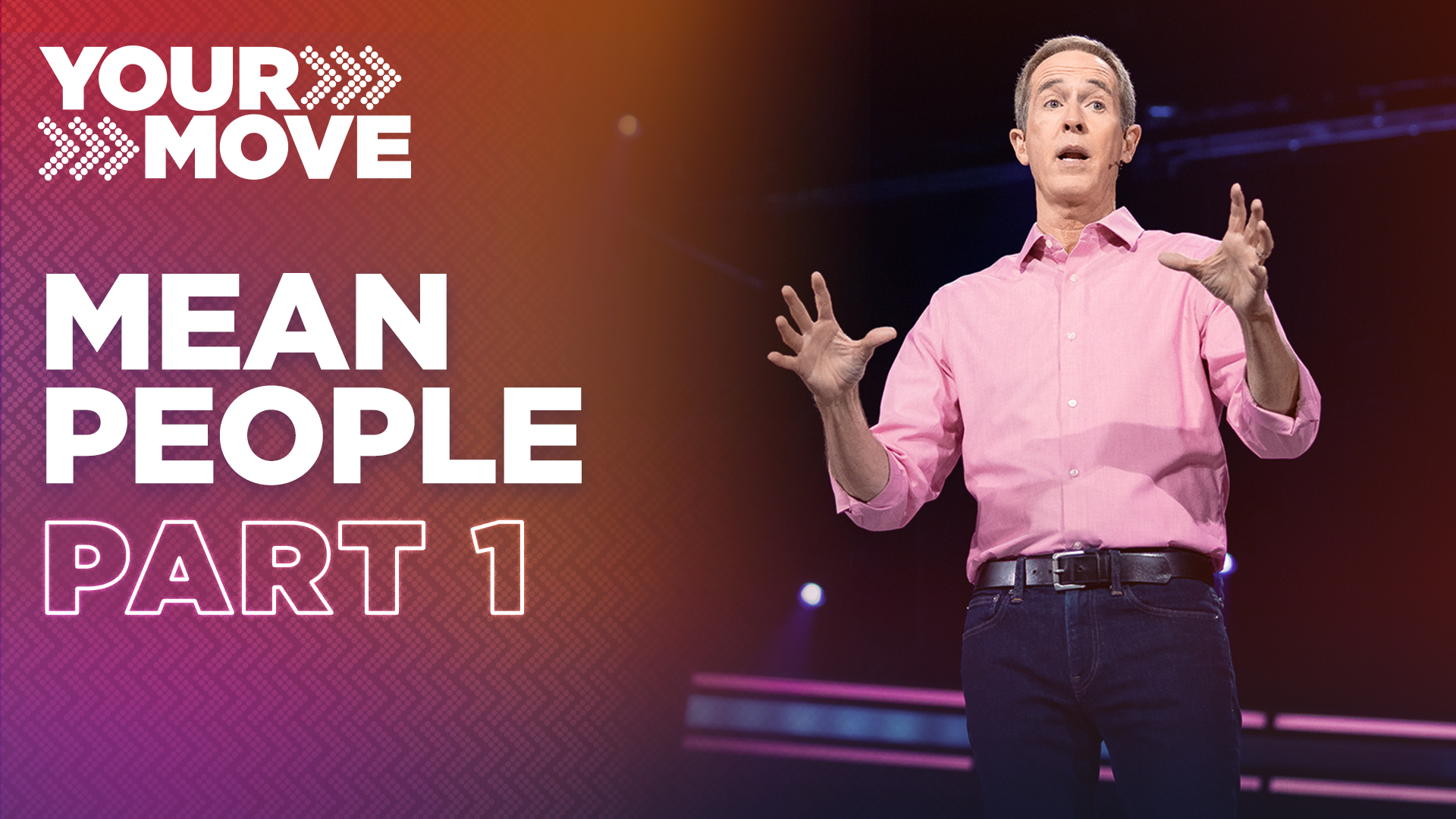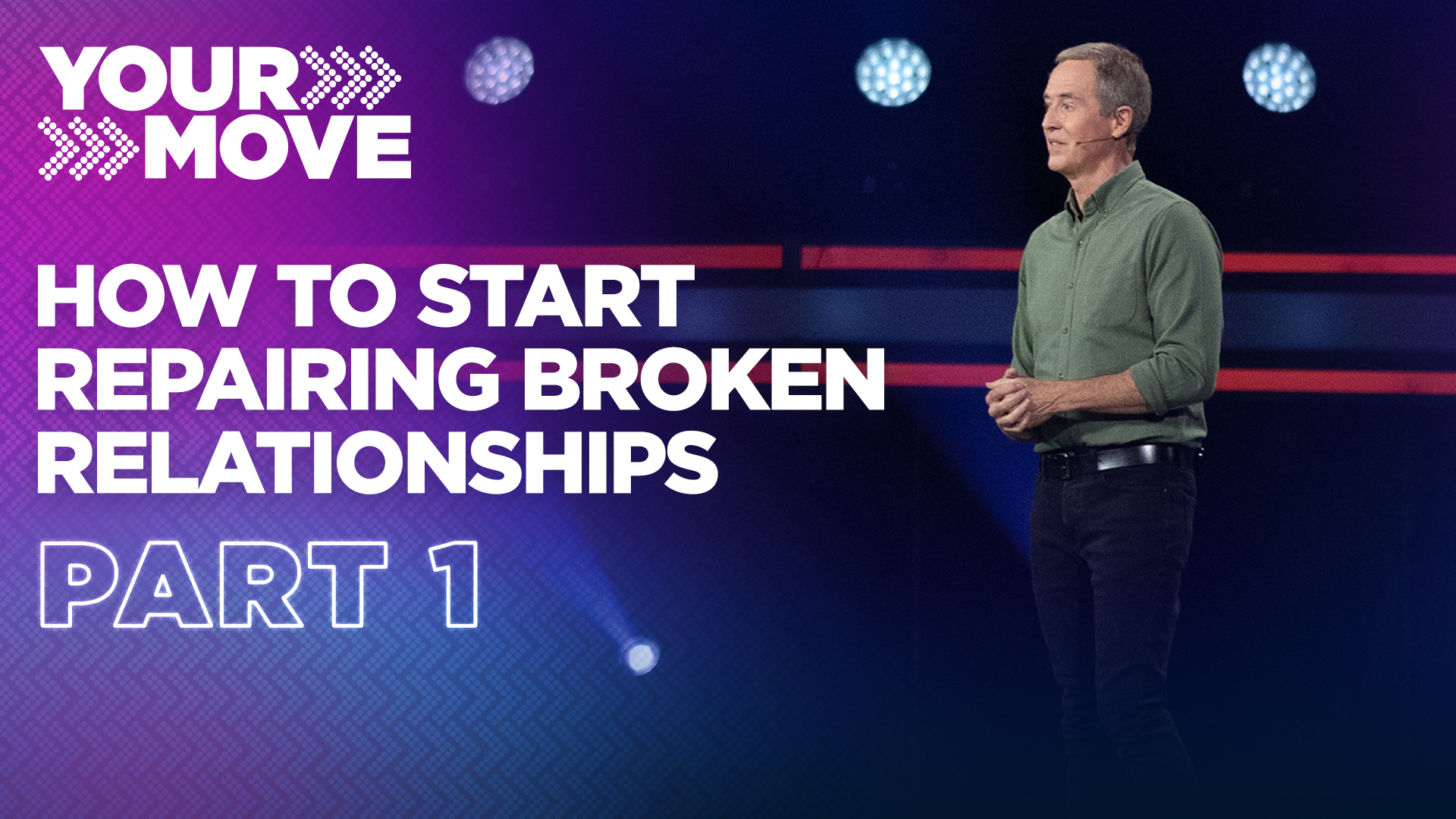We’re all grateful for someone, but do they know how we feel about them? Expressing gratitude might be more important than you think.
- Think about a time when you went out of your way to help someone but didn’t receive the appreciation you thought you deserved. How did that situation impact your relationship with the other person?
- Do you agree that gratitude—or ingratitude—determines the level of trust between two people? Why or why not?
- Have you ever been surprised to hear that someone didn’t feel appreciated by you? Explain.
- What holds people back from expressing gratitude?
- Who are the people that have helped you get where you are today? Do they know you’re grateful for them? If not, how could you show your gratitude for them?
NOTE: The following content is a raw transcript and has not been edited for grammar, punctuation, or word usage.
Ingratitude. Ingratitude. Very few things sting in a relationship like ingratitude, feeling unappreciated. And the reason it stings is because it’s the exact opposite of what we expect, and it’s the opposite of what we think we deserve. You do something for somebody, you serve them, you kind of put yourself out there for ’em, you sacrifice for ’em, you raise them, you marry ’em, whatever it is, you hire them. You give them things that you don’t think they deserve, and so everything’s kind of going their way, and so you expect and understandably so, you expect something to come back your way. In fact, you deserve for something to come back your way, and when it doesn’t, it just hurts, it stings. And ingratitude can be the words that are said, or it can be the words that aren’t said.
Ingratitude can be the behaviors that somebody exhibits, or a lack of behavior. But either way, ingratitude stings, and we’ve been on both sides of this. In fact, here’s the interesting thing about ingratitude. The recipient is always aware, right? If you’re in a relationship with someone and they’re ungrateful, it’s not a mystery to you. You’re always aware. The interesting thing is the initiator or the ungrateful person is rarely aware. This is one of the mysteries in relationships. You can be going along fine thinking everything’s great, and then all of a sudden, somebody comes along and they say, “I just don’t feel like you appreciate me.” Now, how many of you have ever been accused of being ungrateful? Let me ask it this way. How many of you have ever been 13?
[laughter]
Yes, exactly. So… And here’s the strange thing about ingratitude or about somebody accusing you of being ungrateful. When somebody says to you, “I just feel like you’re ungrateful.” The first thing you think is, “No, I’m grateful,” and immediately we think about the feelings of gratitude that we have. But the problem is we haven’t expressed those feelings, and so it’s this huge disconnect relationally, because the person is feeling like unappreciated, they feel unappreciated, but you’re appreciating them shh secretly, or it’s the other way around. And so, again, it becomes a relational disconnect. Now, to get a little bit kind of deep and then we’re gonna look at a cool story from the life of Jesus real quick. Here’s why this is really, really, really important. It’s not just important this week, but it’s really, really important all the time for any of us who are in any kind of relationships that are important to us. Gratitude, gratitude, and ingratitude.
Gratitude and ingratitude are both relationally determinative. There’s a word we don’t use much. Relationally determinative. That is, gratitude and ingratitude drive the direction in the health of all relationships. They are relationally determinative. In other words, they determine how much of you you are willing to continue entrusting to someone else. Gratitude and ingratitude, where either side of it, either side of the equation you’re on. Gratitude and ingratitude, they determine. It’s determinative. They determine how much of you you’re willing to continue entrusting to someone, and it determines how much he is willing to, of himself, he’s willing to entrust to you, and it determines how much of herself she is willing to entrust to you. And because there’s such a disconnect, and because we can be going on our merry way thinking things are absolutely great when they’re not, this is a really, really, really big deal.
Now, if you don’t read the Bible, you should at least read one of the Gospels, the story of Jesus. Even if you don’t think it’s true, even if you don’t think Jesus is the Son of God, you should at least read this stuff. If you read anything, if you read anything, you should at least read one of the Gospels and one of the accounts of the life of Jesus, and we have four: Matthew, Mark, Luke, and John.
And today’s little piece of narrative comes from the Gospel of Luke. And in this story, in this narrative, Jesus asked a question that takes us right to the heart of this issue and the heart of this tension of ingratitude and gratitude. So, here’s how the story goes. I’ll kind of walk you through it. Luke Chapter 17, “Now on his way to Jerusalem, Jesus traveled along the border between Samaria and Galilee.” So if you use your imagination, way up north is Galilee, way down south is Judea, and right in the middle is Samaria. And in the area of Samaria were Samaritans, and the Jews and the Samaritans, they didn’t get along because the Jews felt like the Samaritans were not quite Jewish, but the Samaritans kind of had their own religion but was sort of a Jewish knock-off religion. So, there was a lot of conflict between these two groups. But to go from the northern part of Israel to the southern part of Israel, you had to go through Samaria.
And so Jesus is on the border, and he’s headed to a village in this area. So as the story goes, it says this, “And as he was going into a village,” he was headed into a village on the border between these two regions, “10 men who had leprosy met him.” Now, leprosy’s been cured. In fact, I was reading… This is sort of fun facts. In the last 20 years, I don’t know why this statistic stood out to me. In the last 20 years, over 16 million people in the world had been cured of leprosy. Ain’t that amazing? Sixteen million people.
But in this day and age, people were scared to death, there was no cure, and as you probably know, they thought it was highly contagious and leprosy is passed from person to person. But it is not highly contagious. But people were so afraid of this disease that they would put people with leprosy and not, they didn’t call ’em leper colonies back then, but they had to live unto themselves, they had their own parts of where they lived and they lived outside of society. It was kind of a long-term death sentence. It was like being in prison without any walls because you had to ring a bell, or let people know you were coming. You weren’t allowed to worship, you couldn’t go to the temple, you were religiously an outcast. People thought it was a sign of God’s disfavor or punishment.
So if you had this dreaded disease, you could live a long, long, long time, but you were reminded every single day that you didn’t fit and that you didn’t belong. So these 10 men, because people with this disease found each other and created their own little communities and societies, these 10 men are outside of this village and they see Jesus coming and they stood at a distance because that’s what they were required to do. They stood at a distance and they called out in a loud voice, “Jesus, Master, have pity on us! Jesus, Master, have pity on us!” They couldn’t get close, they knew better so they’re standing at a distance. They hear Jesus is coming, “Jesus, Master, have pity on us.” Now if you read the Gospels, generally in a situation like this, Jesus would go over to the sick person and lay his hands on them and heal them, but in this particular instance, Jesus does something really unusual. Jesus yells back at them, he’s like, “Hey guys!” And he says this, when he saw them, he said, “Go show yourselves to the priests! Go show yourselves to the priests!” “What did he say? Something about a feast?” “No. Go show yourselves to the priests.”
And then Jesus just goes right on into the village and sort of ignores these guys. Now, there’s a lot of drama here but there’s some cool things going on they know about that perhaps you don’t. There were three things sort of going on here. Number one, in the Old Testament law, and this is Israel. The Old Testament law said that if a person had a disease that caused him to be an outcast, so they had to go outside of the camp or go outside the city and live because it was a disease that was contagious, once the disease went away, once a person got well, once a person was healed, they had to go to the priest of that town and they had to show themselves, and the priest would kind of give ’em a clear bill of health. “So, okay, it looks like you’re healed, all that’s cleared up. Sound better. Say aah,” you don’t what the priest did. And then the priest will say, “This person is healed. They can come back into society.” So, it was the law that once you were healed of the disease, you had to show yourself to the priest. Well, the problem was, these guys had leprosy, all 10 of them.
The other thing we don’t know is where the priest was. Because if he was talking about the priest in Jerusalem, this is like a two-and-a-half or three-day journey. Like, “Guys, start walking. Head towards Jerusalem.” They hadn’t been to Jerusalem maybe in years because they weren’t allowed in the city. “Go to Jerusalem and find the priest and show yourself to the priest.” So the first point is, you gotta show yourself to the priest because, once you’re healed, you show yourself to the priest, and they’re like, “We have leprosy, we’re not healed.”
Second thing is, imagine you’re the priest and 10 people show up. Not one person. Ten guys show up and say, “We’ve been healed of leprosy.” That’s gonna make an impression, “How did this happen?” “Well, we yelled at a guy, he yelled back, we came and boom, it happened.”
The third thing that’s happened in here, there’s a lot goin’ on in the story. Third thing that happens is, for you to start walking, maybe hours if there’s a priest close by. Or if you’re going to Jerusalem, if you commit to that journey, you’re thinking something’s up with Jesus. This is a big, big, big expression of your confidence or your faith in Jesus. “I’m gonna make a journey toward Jerusalem. They’re not gonna let me in if I have leprosy, so between this little village and Jerusalem, something better happen.” So for them, to do what Jesus asked them to do was an extraordinary, extraordinary expression of faith.
So there’s a lot goin’ on. Jesus goes in the village, they look at each other and go, “What do you wanna do?” “I don’t know.” “When’s the last time you were in Jerusalem?” “About eight years ago. My parents are there, my cousin is there.” So these guys decide, “You know what? What do we have to lose? We have leprosy and it’s Jesus, and we didn’t get close, I think it was Jesus, we were at a distance.” And these guys start making their way to the closest priest. We don’t know if this was hours away, we don’t know if this was days away. I have a feeling it was further away than we normally think because of what happens later in the story. And maybe, you know how the story goes.
And Luke tells us, “As they went, they were cleansed.” Now, we don’t know if this is an hour, six hours. They spend the night on their way to Jerusalem, the next morning they wake up and it’s like, “Are you kidding me?” We don’t know. But some time went by, Jesus goes on into the village. Perhaps Jesus goes in the village, spends the night. He’s on his way to Jerusalem too, because the text tells us he was on his way to Jerusalem. But the story says that at some point along the way, these 10 men realized, “We are being or we have been cleansed. We have been healed.” And this is where the story begins to intersect with the topic of ingratitude. One of them, one of them, just one of them, when he saw that he was healed, came back to Jesus. One of them, there’s 10 of them, they’re on their way to Jerusalem, all of a sudden they realize, “Oh my gosh, our bodies are changing. I’ve been healed.” At that point, they take off running to the priest because the priest is gonna put a check in the box on their little chart and then they can go see their families, they can begin life again. They just got their lives given back to them. The quicker they get to the priest the better, because their lives has just changed, but first things first, we gotta get a clean bill of health from the priest.
But one of them turns around, we don’t know if he turned around and had to go back an hour, six hours, a day. We don’t know. But one of them when they realized that they had been healed, turns around and comes back to Jesus, praising God in a loud voice, don’t you know? And the text tells us that he finds Jesus and his disciples and he threw himself at Jesus’ feet and thanked Him. And he was, in fact, a Samaritan. Conflict between Jewish people and the Samaritans. This guy, Luke tells us, he got all the details. I told you I’m gonna investigate this, get all the details. This guy was a Samaritan. And essentially what he did, and this brings us to the application as we begin to think about this principle in our life. He went back, he went back to thank the one who enabled him to move forward with his life, that’s what he did. He went back in order to thank the one who had enabled him to move forward with his life. He got his life back, but he went back to thank the one that allowed him to go forward with his life.
Now every single one of us, we know this, every single one of us, no matter what you’ve accomplished, no matter how talented you are, no matter how hard you’ve worked, no matter how ambitious you’ve been, no matter how disciplined you’ve been, and it takes all of that to be successful in life. No matter what you’ve accomplished and what you have, all of us can look in the rear-view mirror of our lives and there are people that helped us get here. There are people that facilitated our forward motion, our forward progress, our success. All of us have people behind us that made what we’re doing now possible.
This guy went back to the one that allowed him to go forward with his life, and he returned and he thanked him. And then Jesus asked the questions that take us right into the tension of distinction between gratitude and ingratitude. Jesus asked, and I think He had a grin on his face, I think this is kind of a moment because Jesus’ disciples are with him. Jesus asks, “Were not all 10 cleansed?” I think this is facetious, it’s like, “Oh, so, I send all 10 of you to the priest, you know? You got there and you’re the only one.” The other nine guys are going, “Oh man. Back to the village and hang out.” He says, “Are you the only one that was cleansed? Were not all 10 cleansed? Did the miracle not work? Did I not get it right? Did I not have enough power for all 10? Was it just one?” And then, He asked the question. Are you ready for this? So, we’re ready. You’re ready? We’re ready.
Okay, here’s the question. “Where are the other nine? Where are the other nine?” There’s something missing. There’s something wrong with this picture. There’s something incomplete. There’s something open-ended. There’s something unfinished. Unfinished. Now, do you know the first time that you experienced this tension, like something’s been done for you, but now there needs to be something else done. There’s something unfinished, incomplete, unfinished? It’s when you were a kid. You remember this? When you were a kid and you were with your grandparents or your parents or one of your parents or a cousin or somebody older than you, and let’s say it’s Christmas and you’re waiting in line to see Santa and Santa’s elves are out in the mall, and they are handing out candy and they walk up to you, and you’re in line, and they walk up to you and you’re a little kid, and they hand you a piece of candy. And immediately, you start unwrapping it, but before you can do anything, the adult with you asks you a question. You remember what the question was?
Audience: What do you say?
What do you say? What do you say? And remember, think of this tension. There’s almost a sense of panic like, “Ohhh! Before you unwrap it, what do you say, what do you say?” You know what every adult in that moment knows? There’s something unfinished. There’s something incomplete. There’s a circle that hasn’t been completed. There is something that has yet to be done. Before you do anything else, what do you say? And you looked at it and you said, “I’d rather have Starburst. I don’t know. What am I supposed to say?” “You’re supposed to say ‘thank you'” because every single adult in that moment knows, if there is not an expression of gratitude, something’s wrong, something is missing.
We know that this is a big, big deal. We know it’s a big deal when it’s our kids. We know it’s a big deal when we’ve given something to a kid. We know it’s a big deal because the dynamic I just explained. But in our lives as adults, when we begin to think in terms of our interpersonal relationships with the people we really do appreciate, that we really do love, people that really have allowed us to go further faster because of their investment in our life, we begin to miss this. But there is something missing, there is something unfinished, there is something that is incomplete. And we almost panic, as adults, when a child doesn’t say thank you. But when it comes to us as adults, it’s easy to just keep moving forward.
So then, Jesus finishes his question. He says this, “Has no one returned to give praise to God, except this foreigner?” And then he said to him, “Rise and go. Your faith, your faith, your faith that you exhibited when you started on your way to find a priest when you were still sick, your faith has made you well.” Now, if you were to read the story in isolation, you were to read the story by yourself, your immediate reaction to the story is, “How ungrateful! How ungrateful! How extraordinarily ungrateful! These guys just got their lives handed back to them and they just go on their merry way?”
But, if we were to track these guys, these nine guys down, they’re probably praising God too and singing songs and on their way to find the priest. If we’d tracked them down and said, “Wait, wait, guys, guys. Hey, are you grateful for what Jesus just did for you?” What do you think they’d say? “Yeah. We are so grateful.” Our hearts, our hearts, our minds, our souls are filled with gratitude. But the problem is this, and again, this is where we mess this up and this is where we miss it. When it comes to the other nine, the other nine, they felt it. They didn’t express it. They felt it. They didn’t express it. They were just gonna move on with their lives. And is that a big deal? Jesus thought so. “Where are the other nine? Weren’t 10 of them healed? Weren’t there 10 that were healed? Something’s wrong.
And that brings us, really, to a simple, simple, simple idea. Every single relationship you’re in right now, every single relationship I’m in right now, this principle is playing out either in a positive or a negative way. And it’s simply this: That unexpressed gratitude, unexpressed gratitude communicates ingratitude. And here’s the thing, it’s not a neutral thing. It is a withdrawal. Or another way of saying it is this, that the gratitude you feel, think about this, the gratitude that you feel, the gratitude that you feel in your heart is also felt by the other person, but they feel it as ingratitude, if it’s not expressed. The gratitude you feel, but don’t express, is felt by someone as the very opposite of what you feel. Ingratitude.
It goes deeper than that, because unexpressed gratitude is actually experienced as rejection. It’s experienced as rejection and here’s how it works, you know this. Well, I deserve that. What it communicates is, I deserve that. Well, have you thanked your mom? It’s just my mom. Moms are supposed to do that. Well, have you thanked him? What do you think I pay him for? Thank him? I pay him to do that. Why would I thank him? He owes me that. I don’t owe him anything. You’re supposed to support the family. It’s your job to do that. And so what happens is, without ever meaning to, an unexpressed gratitude begins to feel like rejection. And over time, some of you experienced this growing up, over time, unexpressed gratitude has the same effect as rejection. This is helpful, what I’m about to say, so listen really carefully. Your heart, your heart, I know this about all of you, God made us this way. And if you don’t believe God made us, however we got this way, we are this way. Our hearts gravitate toward acceptance. Our hearts are repelled by rejection.
You’re this way. We’re all this way. Our hearts gravitate toward acceptance. Our hearts are repelled by rejection. Ingratitude is a subtle, subtle form of rejection, which means you can ingratitude somebody right out of a house. You can ingratitude yourself right out of their heart. You can ingratitude a kid out of your home. You can ingratitude the person that you would say you love the most right out of your life because ingratitude, ingratitude, ingratitude is a subtle, subtle form of rejection.
It is determinative. Over time, it has a subtle, subtle impact that over time has the full range of impact of actual rejection. This is why it’s determinative. This is why it’s something we have to do something about. This is why it’s not enough to feel it; you’ve got to express it. This is why it’s not enough to think about it, it’s not enough to tell somebody else. At some point along the way, especially in the critical relationships in you life, regardless of your personality, regardless if you’re an extrovert or an introvert, regardless of, “I just don’t do that and that’s just not me,” you’ve got to figure out a way to get what’s inside of you, in your heart, into the minds of the people you are most grateful for because over time ingratitude communicates rejection. And everybody’s heart is an acceptance magnet and everybody’s heart is repelled by rejection.
And then, to take it even one step deeper. This is where it becomes a little bit dicey, and this is what I’ve… If this bothers you what I’m about to say, I hope it bothers you, but hate me, but I hope you’ll think about why does this bother me? Unexpressed gratitude, unexpressed gratitude may indicate an inflated view of self. Unexpressed gratitude, it’s like it’s in your heart, but I can’t say anything. I’m not gonna say anything. They work for me. That’s what she’s supposed to do. After all, look what I’ve done for them. Unexpressed gratitude may indicate an inflated view of self. In other words, if it is hard for you to say thank you, if it is hard for you to sit someone down and say, “I really, really appreciate what you do,” you need to ask yourself why. Because you’re smart enough to know you did not get to where you are based on just things that you did. You know that. You know there are people in your past that allowed you to get to where you are. If there’s something in you that it’s just so difficult to express gratitude, you need to ask yourself why, because in the wake of your progress are dozens of people who facilitated your progress.
There is a sense in which, and think about this language that we use, there’s a sense in which you owe. This is how we say it. You owe a debt of gratitude, that unexpressed gratitude. Unexpressed gratitude is a debt that has yet to be paid. But when you turn all that around, you look it from the other perspective. Expressed gratitude, actually, closes the loop. Remember what Jesus said, “Where are the other nine? Where are the other nine?” There’s something unfinished, there’s something missing, there’s something incomplete. Gratitude, expressed gratitude, not a gratitude in our heart, expressed gratitude closes or finishes the circle, or closes the loop. You could picture it this way. Any time somebody does something for you, there is something incomplete until they receive something from you. Any time, any time, someone does something for you, it is an incomplete relationship until they receive something from you.
[laughter]
Just because we could. Okay.
[laughter]
Now, here’s what, I just want to make sure you’re awake. Here’s what I want you to think about. Here’s what I want you to think about, okay? It is not enough to feel it. It is not enough to feel it, you’ve got to express it. And we’re not all gonna express it the same way, and we’re not all gonna express it with the same energy and the same emotion, that’s not it. But at some point, especially for the people… Look up here. Especially for the people whose relationships with you are most important, because gratitude and ingratitude are relationally determinative.
They either communicate acceptance or rejection. And right now, in this very moment, for every single one of us, this dynamic is being played out. The question is, have you figured out a way, and have you developed the habit, and have you taken the time? And if you dealt with your pride to the point that you are in the habit of expressing gratitude, because unexpressed gratitude communicates ingratitude? Or to ask the question within the context of the story of Jesus, Are you gonna be the one, or are you going to be the nine? Because at the end of the day, it is gratitude. When it comes to gratitude, it’s not enough to feel it, you’ve got to express it.
So, can I ask you a couple of questions? Alright. I’m gonna try the best of my ability to bring some faces and some names to mind. Now, here’s how some of you are gonna struggle. This is what I would be thinking if I were sitting in the audience today, I would thinking, “Oh, that he is so right. I’m so grateful for and they’re here and she’s down there and… I’m so grateful. I’m so grateful. But, if I express gratitude tomorrow, they’re gonna go, ‘Well, the only reason he’s doing this is because of that sermon.’ So, I’m gonna wait a couple of weeks.” Okay, guys, look up here, that is pride. And I get it, because I get this. None of us wants some guy that you don’t even know really, up here, telling you how to live your life. “This is what you got to do in your marriage, how to raise your kids, and morality and sexual life, here I’m telling you.” Nobody wants to be told what to do. And guys, we really don’t want some other guy telling us what to do. I completely get that, so I accept that.
But let me tell you the flip side of how this works. The person that you need to express gratitude, if they’re here or if they’re listening, if you don’t, it’s gonna sting even more. They’re gonna feel even more unappreciated, so it is okay to say, “You know as Andy was talking, I thought, ‘Wow, I’ve not… ‘” Just own it. They will so appreciate it. Don’t wait until you think somebody is gonna think this is your idea. They know you. They know it’s never gonna be your idea. You would’ve already done it. Okay?
Here we are. Ready? Who do you… Come on. Who do you take for granted? “Oh, of course, that’s what she’s supposed to do. That’s what he’s supposed to do. I pay them to do that.” “Well, he’s my boss. I mean, of course, that’s what bosses do.” Who has really facilitated or facilitates your forward motion, and you progressed, and you just kind of take them for granted? You’ve never expressed gratitude. Who do you owe a debt of gratitude to? Another preposition at the end of a sentence. Who do you need to close the loop with? With whom? Who do you need to close the loop with? Yeah, they’ve done their part, you’re grateful in your heart, but when you think about it, you’ve never done the other half. You’ve never… There’s something that is incomplete.
For some of us, there are people in our past, we don’t even have relationships with them anymore. In fact, we’re not even sure exactly where they are, but when we think about it, “Boy, if it hadn’t been for her, if it hadn’t been for him, if he hadn’t given me that opportunity, if she hadn’t given me that first job, if he hadn’t put up with me when nobody else want to put up with me,” and time goes by and you’re so grateful. In fact, when you tell your story about your success or whatever it is that has allowed you to get to where you are, they are part of your story and you’ve never thanked them in any kind of formal or official way. Who has facilitated your success? Don’t you want to be the one and not the nine? I wanna challenge you to do something.
Now, if you don’t do it, no guilt. I’m not God, I’m not your boss, nobody made me the boss of you, I’m not in charge of your life. This is just a challenge. It’s not a command. It’s just a challenge. But I’d like to challenge you, and I’m doing this. I’d like to challenge you to write three notes. Now, some of you, you’re such a note writer, others of you will, “Can I just call ’em and text ’em, ‘Hey, thanks, dude, you know?'”
[laughter]
No, no. There is something about a written thank you that is in most cases more powerful than a verbal thank you. In some cases, you are gonna wanna hide behind the note and not say it. In that case, you need to be the one that sits down with somebody or actually calls them. Would you be willing, would you be willing to intentionally, as you think about who came to mind when I read those questions, reach out to that person or those persons, three people, and either write them a note, I think writing a note is a good thing to do, or express your gratitude in a meaningful way, in a way that it will be meaningful to them? Because here’s what I know about every single one of you, you are grateful in your heart. You are. We’re all grateful. The question is, have we expressed it? Because unexpressed gratitude is felt and experienced just like ingratitude. It’s not enough to feel it. We’ve got to express it.

